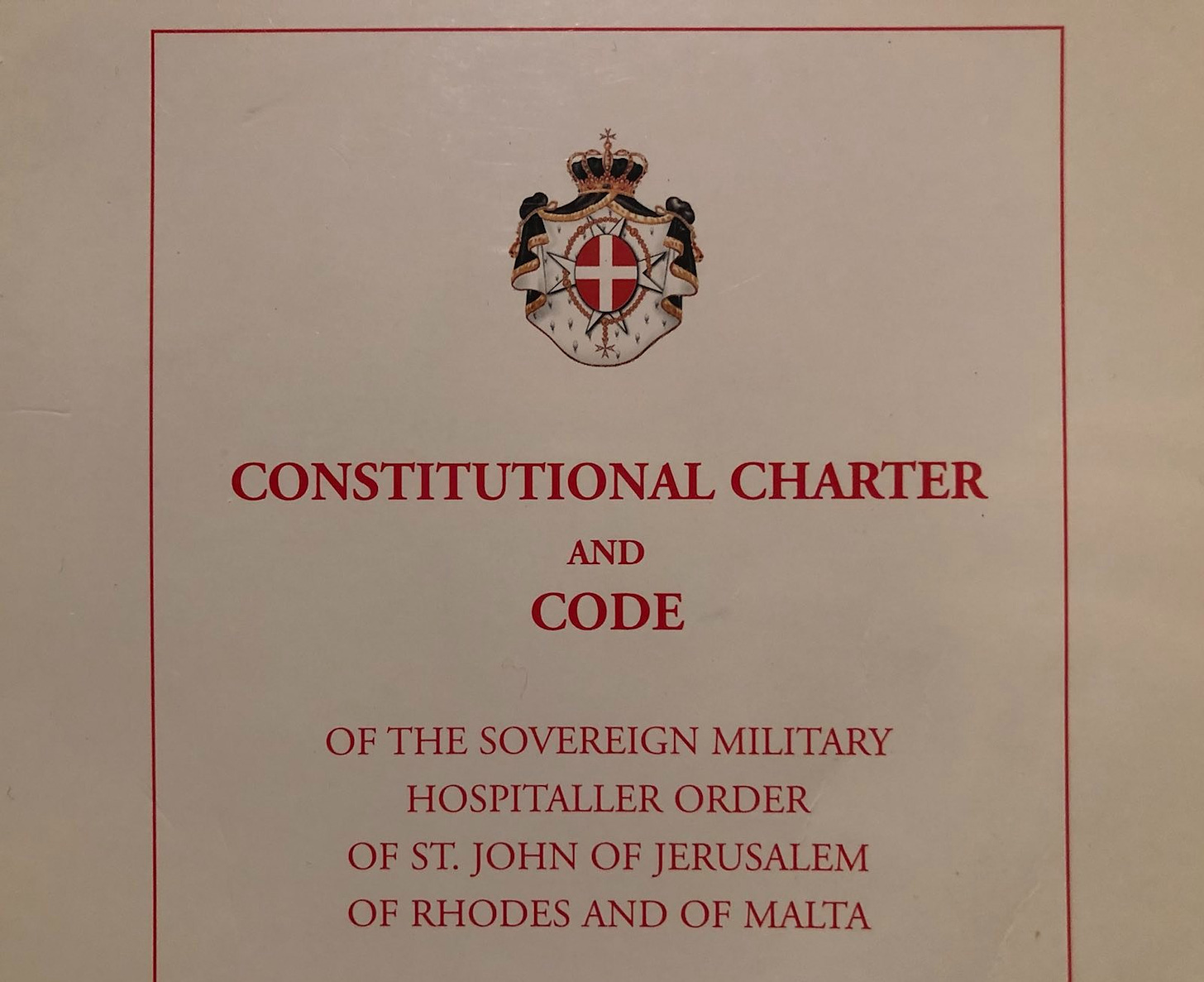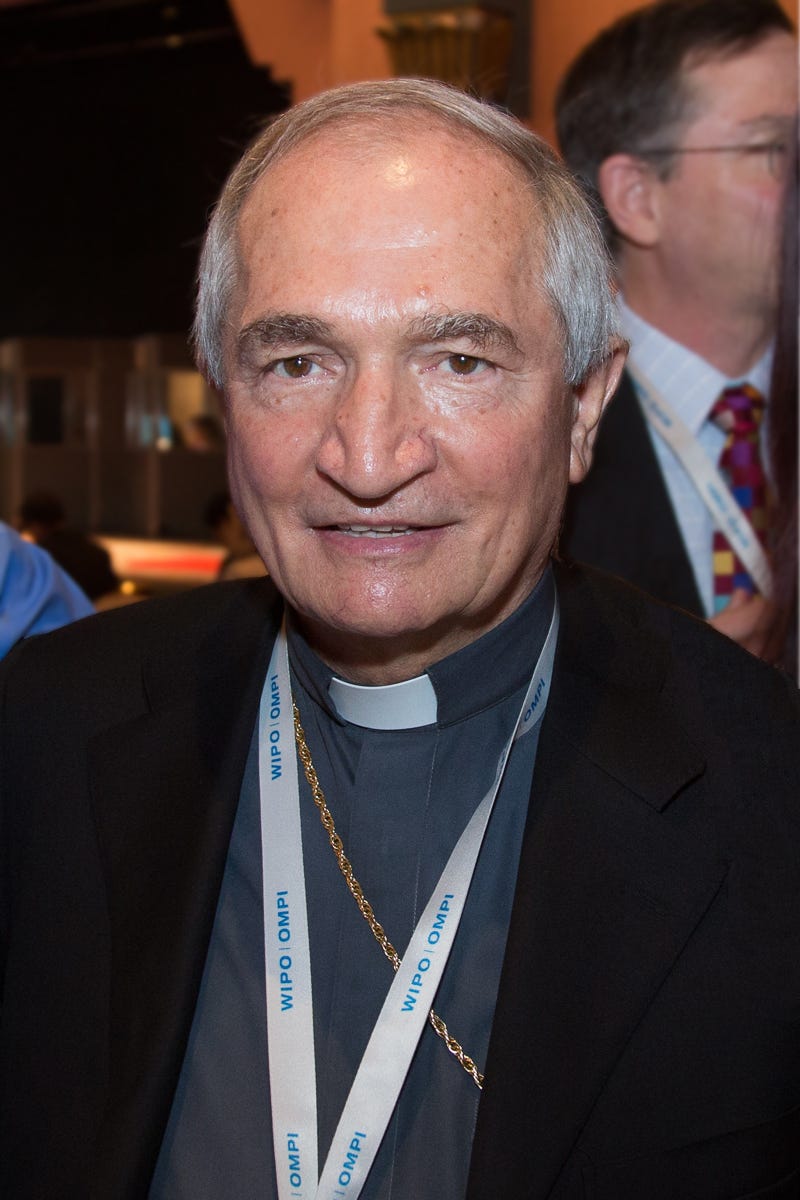Pope Francis’ decision to grant sweeping powers to his delegate to the Sovereign Military Order of Malta is the result of months of deadlock between Cardinal Silvano Tomasi and members of the order’s leadership, senior knights have told The Pillar.
Senior figures within the order said the pope’s Oct. 25 decision represented “a nuclear option” that came after a stalemate between Tomasi and the faction of the order’s leadership led by Grand Chancellor Albrecht von Boselager. Their disagreement centers around the drafting of a new constitution for the 1,000 year-old order.
At the center of the dispute is the future role of the order’s first class knights, who are professed religious, taking vows of poverty, chastity and obedience. Senior leadership positions, including the office of Grand Master, are reserved to the religious knights, while other positions, like that of Grand Chancellor, are open to second class knights who do not make religious vows.
Several knights told The Pillar that the order’s leadership, under Boselager, has been committed to a plan that would limit the role and influence of the first class knights over the governing structures of the order, while Cardinal Tomasi has been eager to address the concerns of the professed religious about that plan, and to see feedback from the order’s national associations around the world incorporated into a new constitution.
That disagreement led to a stand-off.
“There was a set plan from the Grand Chancellor’s office to make changes to how the order is governed, and the role of the Fras [the professed religious knights]. The Fras didn’t agree, the associations were not involved, and now the Vatican has stepped in,” one senior knight from a European association within the order told The Pillar.
“There are two visions” of reform, said another knight close to the order’s headquarters in Rome.
“One vision leans towards a kind of professionalism and efficient corporate leadership for the work of the order, the other is about keeping the professed at the heart of things; being a religious order before we are anything else.”
“There was this push to have the Fras cabined away, a kind of religious talisman for our work, rather than being the focal point of who we are and what we do. That, at least from what I have seen and heard of Tomasi, isn’t going to happen.”
The Pillar spoke with three senior members of the order from different associations, each requested anonymity because of internal divisions within the order, and because they were not authorized to speak to the press about the affair.
“Since the beginning,” said one senior knight close to the order’s headquarters in Rome, “this has been about making sure the ‘right’ people are in charge of things, nothing else.”
You won’t find in-depth coverage like this, on a subject like this, anywhere else in the world. To keep it up, we need you on The Pillar’s team.
Also featured in reform plans proposed by the order’s leadership, sources told The Pillar, was a proposal to grant greater operational authority over the order to the office of Grand Chancellor, which would function as a kind of prime minister of the order, and leave the office of Grand Master — occupied by a professed religious — as a more ceremonial role.
Cardinal Tomasi reportedly rejected that proposal. It will not feature in the eventual constitutional text, which will be considered by an extraordinary general chapter, set to be convened by the cardinal in the coming months.
“The religious are staying at the heart of the order,” said one knight with knowledge of the situation. “Cardinal Tomasi has understood that the Fras are our soul, if they are not at the heart of everything, we are no longer the order we have been for a thousand years.”
Boselager has not supported efforts to do away with some of the order’s long-standing traditional elements.
In an interview last year, Boselager acknowledged a “great consensus that the requirement of nobility for the [order’s] Grand Master should be abolished."
Boselager did not support the total abolition of nobility requirements for offices in the order, and predicted that some could remain in effect for senior positions like his own.
"I think there will be changes," he said, "but, without specifying certain offices, perhaps there will be a quorum for noble members, but this is under discussion."
The order’s nobility requirements for senior positions have been especially vexing for members from countries without hereditary titles, including the United States, as they are effectively impeded by birth from senior leadership roles.
In the same interview, Boselager said that a reforming agenda came directly from the pope and that “regarding the professed, the Holy Father has demanded especially that the regulations dealing with the first class of the order are revisited.”
Boselager acknowledged that the reforming plans had met with resistance from some quarters, but said that while it was important to seek consent of all parties where possible, “at the end it has to be decided and compromises have to be found.”
All three knights told The Pillar that it was the Grand Chancellor’s office which has been slow to compromise, and which had declined several requests that the order’s national associations and professed knights be more involved in the constitutional drafting process.
Two members of the order separately told The Pillar that Cardinal Tomasi has insisted on a broader consensus for new constitution, but has met resistance from the Grand Chancellor’s office — so much so, they said, that Tomasi has held his own meetings with association heads and the order’s professed knights, without the involvement of the Grand Chancellor.
Last year, the 25 senior religious knights of the order, the Fras, circulated a letter to the order’s leadership and to the Vatican, expressing concern that they were not being consulted on reforms to their own status within the order.
Others from the order’s membership associations around the world have also expressed concerns that the religious character of the order could be sidelined, along with the first class knights, in preference for a focus on the order’s work as a major international aid and health organization, deploying tens of thousands of doctors, nurses, relief workers and volunteers in dozens of countries.
While the order’s leadership officially welcomed the pope’s action in a brief statement Tuesday, and said that it “will accelerate the process of reform,” several knights told The Pillar the pope’s decision to empower Tomasi was a reaction to delays caused by the order’s headquarters.
“This is the final result of a failure to cooperate or compromise,” one knight close to the order’s Grand Magistry in Rome told The Pillar. “There was a clear agenda for a certain direction of reform, one which had the support of some of the high officers and their allies, but almost no one else. Now there will be a new settlement.”
“For months now,” a second senior knight, affiliated with a European association said, “Tomasi has been clear about what should happen next, and it is the headquarters in Rome which has been blocking him. Prior to [Dalla Torre’s death] they were in a terrible hurry to hold a general chapter and to get a new constitution approved. Now, since Tomasi became involved, they have gone into total reverse, everything is stalled. I think the cardinal — and Pope Francis — have finally lost patience.”
“[The general chapter] should have happened in November, prior to the Lieutenant of the Grand Master’s mandate expiring, but there simply hasn’t been the necessary preparation,” said one knight close to the order’s headquarters in Rome. “We will see if the cardinal’s new authority inspires a new attitude.”
All three knights who spoke with The Pillar predicted there would be push-back to Tomasi’s new powers from the order’s chancery in Rome, and arguments that it represented too much interference in the order’s sovereign internal affairs.
But one knight told The Pillar it would be “ironic” if the order’s current leadership objected to the pope’s intervention on sovereign legal grounds, given that it was the supporters of Boselager who initially petitioned the Vatican to involve itself in the order’s internal governance.
The internal dispute dates back to 2016 when an aid project of the order in Myanmar was found to have distributed thousands of condoms. After that became known, the order’s Grand Master, Fra’ Matthew Festing, ordered Boselager to resign as Grand Chancellor. Boselager insisted that he had not known about the distribution of condoms, and that he had put a stop to it as soon as he became aware.
When supporters of Boselager petitioned the Vatican and the pope directly, Francis intervened, ultimately leading to the forced abdication of Festing. Boselager was reinstated to his position after Festing resigned. After Festing resigned, Fra’ Giacomo Dalla Torre was elected to lead the order, but he died in 2020.
For almost a year, the order has been led by Fra' Marco Luzzago, who was elected Lieutenant of the Grand Master shortly after the appointment of Tomasi, and given full governing powers for a one-year term. This week, Pope Francis granted Tomasi power to govern the order directly if he felt it necessary and charged him with convening an extraordinary general chapter to approve a new constitution for the order.
The Vatican’s intervention in the order’s internal affairs is a controversial matter. While it is a Catholic institute of consecrated life, the order’s current constitution specifically delineates its independence from the Vatican in matters of internal governance, and it has the same sovereign status in international law as the Holy See, including full diplomatic relations with nation states, its own passports, and permanent observer status at the UN.
While the pope has traditionally assigned a Cardinal Patron to oversee the order’s spiritual welfare, after forcing Festing’s abdication, the pope created the new post of “cardinal delegate” to oversee the “spiritual and moral” reform of the order.






